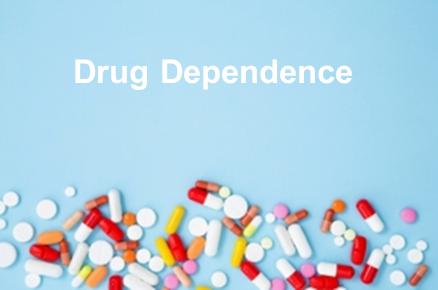In Vitro Drug Dependence Study
In medical terms, drug dependence refers to a physical condition in which the body has adapted to the presence of a drug. It remains a serious problem throughout the world and has become a major threat to public health and social security. Therefore, study on methods of treating drug dependence has become increasingly important. Creative Biolabs has a wealth of experience and successful research cases in this area.
Drug Dependence

In medical terms, dependence refers to the state of needing a certain drug in order to function normally. If an individual with drug dependence stops taking that drug suddenly, the person will experience predictable and measurable symptoms, known as a withdrawal syndrome. For many types of medications, withdrawal symptoms can occur when the user stops taking the drug. These symptoms range from moderate discomfort to severe and even life-threatening effects. Drug dependence does not always involve the use of illegal drugs. For example, people with diabetes may rely on the drug insulin. In the absence of this drug, the man will die. A person addicted to alcohol or sedatives will undergo a physical withdrawal syndrome with symptoms such as delirium, tremors, sweats, and more, once the substances are removed from him. As a result, drug dependence can occur in prescription drugs, illicit drugs, or alcohol. Although drug use has a negative impact on the life of the drug user, it is still consumed repeatedly. Drug dependence indicates that a drug user is dependent on the drug either physically, psychologically or both in order to function in daily life.
In Vitro Drug Dependence Study
Drug development is a continuous, gradual systematic project, and dependence study is a part of it. Novel compounds having a structure similar to a compound known to have dependence, drugs acting on the nervous system and having sedative, analgesic, excitatory, and hypnotic effects, drugs directly or indirectly acting on receptors such as central opioid receptor, drugs containing a dependent component in a metabolite and drugs that are considered to be non-dependent previously but found to have a tendency to be dependent in later applications all require drug-dependent studies. In order to obtain scientific and effective dependence information, the most appropriate animal model or other in vitro models should be selected to study the dependence of the test drug. At present, the in vitro models are increasingly favored by pharmacists because of their advantages of fastness, simplicity, low cost, and no ethical issues. Drug dependence studies include evaluation of chemical properties such as chemical structure, chemical synthesis, chemical extraction and solubility as well as pharmacological evaluations like neuropsychopharmacological effects, receptor binding, self-administration, drug discrimination tests, somatic dependence tests, and tolerance.
In drug dependence studies, in vitro models are often used to study drug activity characteristics and mechanisms of action to support drug dependence studies. At Creative Biolabs, you can choose an appropriate system from in vitro models including organoids, ex vivo organs, tissues, cells, subcellular organelles, receptors, ion channels, and enzymes to meet your research needs. Our top scientists and skilled experimenters can also test your every genius idea based on professional protocols and strict implementations so that your drug development will be more effective and creative!
Creative Biolabs has an experienced team of highly educated scientists, including pharmacology, molecular biology and chemistry experts. We can provide various in vitro models and comprehensive services for drug dependence study, please feel free to contact us for more information.
For Research Use Only.
